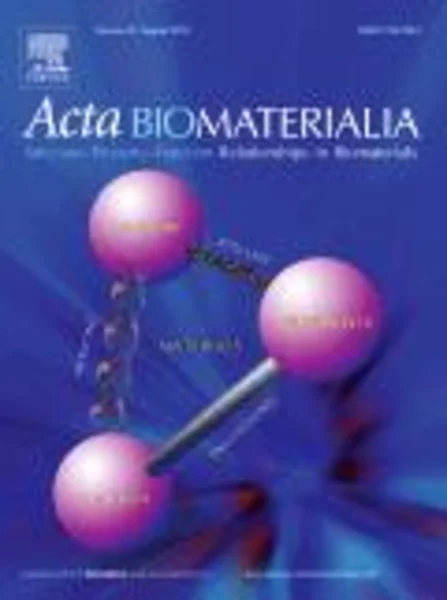-
reducing cytotoxicity while improving anti-cancer drug loading capacity of polypropylenimine dendrimers by surface acetylation
جزئیات بیشتر مقاله- تاریخ ارائه: 1392/01/01
- تاریخ انتشار در تی پی بین: 1392/01/01
- تعداد بازدید: 810
- تعداد پرسش و پاسخ ها: 0
- شماره تماس دبیرخانه رویداد: -
polypropylenimine (ppi) dendrimers have been widely used as effective delivery vehicles for drugs and nucleic acids during the past decade. however, biomedical applications of ppi dendrimers were limited because of their serious cytotoxicity and low drug loading capacity. in the present study, acetylated ppi dendrimers with different degrees of acetylation ranging from 14.2% to 94.3% were synthesized and used to encapsulate drugs, including methotrexate sodium, sodium deoxycholate and doxorubicin. acetylated ppi dendrimers with a degree of acetylation >80% showed a significantly decreased cytotoxicity (>90% cell viability) on mcf-7 and a549 cells. the drug loading capacity of acetylated ppi dendrimers increased proportionally with the degree of acetylation on the dendrimer surface. in addition, 94.3% acetylated ppi dendrimers exhibited a ph-responsive release profile of anticancer drugs loaded within the nanoparticles. the cytotoxicities of methotrexate sodium and doxorubicin on mcf-7 and a549 cells were significantly reduced when they were complexed with acetylated ppi dendrimers with high degrees of acetylation (>80%), owing to sustained drug release from the dendrimers. the results suggest that surface acetylation can reduce the cytotoxicity and improve the anticancer drug loading capacity of cationic dendrimers, and that acetylated ppi dendrimers are promising vehicles for anticancer drugs in clinical trials.
مقالات جدیدترین رویدادها
-
استفاده از تحلیل اهمیت-عملکرد در ارائه الگوی مدیریت خلاقیت سازمانی و ارائه راهکار جهت بهبود
-
بررسی تاثیر ارزش وجوه نقد مازاد بر ساختار سرمایه شرکت های پذیرفته شده در بورس اوراق بهادار تهران
-
بررسی تأثیر سطح افشای ریسک بر قرارداد بدهی شرکت های پذیرفته شده در بورس اوراق بهادار تهران
-
بررسی تأثیر رتبه بندی اعتباری مبتنی بر مدل امتیاز بازار نوظهور بر نقد شوندگی سهام با تأکید بر خصوصی سازی شرکت ها
-
تأثیر آمیخته بازاریابی پوشاک ایرانی بر تصویر ذهنی مشتری پوشاک ایرانی (هاکوپیان)
-
مقایسه آزمایشگاهی جذب انرژی در تیرهای کوپله فولادی با مقاطع i و box
-
تبیین جایگاه مولفه غنای حسی در ایجاد حس تعلق به مکان
-
خانه تاریخی حاج شیخ در بافت تاریخی شهر تبریز از جنبه معماری به عنوان یک جاذبه گردشگری
-
(the improvement of mechanical properties for soft clayey soils by electrokinetic geosynthetic (ekg) in persian gulf water condition)
-
synthesis of the novel zeolite nay/cufe2o4 /cds ternary nanocomposite for the sonocatalytic degradation of toxic organophosphorus pesticide from water media
مقالات جدیدترین ژورنال ها
-
مدیریت و بررسی افسردگی دانش آموزان دختر مقطع متوسطه دوم در دروان کرونا در شهرستان دزفول
-
مدیریت و بررسی خرد سیاسی در اندیشه ی فردوسی در ادب ایران
-
واکاوی و مدیریت توصیفی قلمدان(جاکلیدی)ضریح در موزه آستان قدس رضوی
-
بررسی تاثیر خلاقیت، دانش و انگیزه کارکنان بر پیشنهادات نوآورانه کارکنان ( مورد مطالعه: هتل های 3 و 4 ستاره استان کرمان)
-
بررسی تاثیر کیفیت سیستم های اطلاعاتی بر تصمیم گیری موفق در شرکتهای تولیدی استان اصفهان (مورد مطالعه: مدیران شرکتهای تولیدی استان اصفهان)
-
بهینه سازی رنگرزی الیاف پشم با روناس و سطح فعال ها
-
بررسی میزان تأثیرپذیری سکون زدگی شغلی کارکنان از تفکر استراتژیک مدیران و مولفه های آن در سازمان آتش نشانی شهر رشت
-
معماری زمین پناه مسیری به سمت معماری پایدار به ویژه در اقلیم گرم و خشک
-
bivariate hydrologic risk assessment of flood episodes using the notation of failure probability
-
cross sectional crash severity analysis among various vehicle driver characteristics




سوال خود را در مورد این مقاله مطرح نمایید :